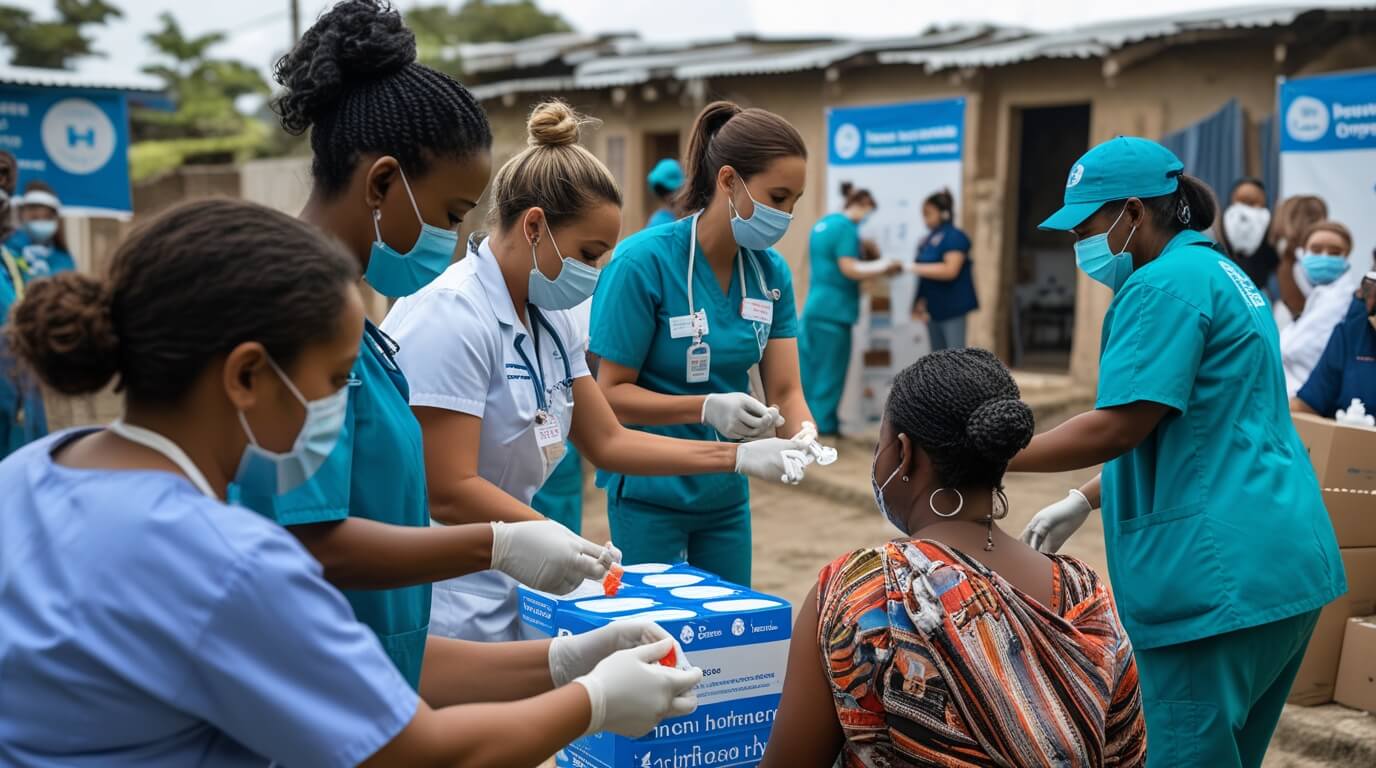Non-Profits Fighting Global Pandemics: A Look Inside

When the world faces a pandemic, the spotlight often shines on governments and healthcare systems. Yet, behind the scenes, non-profit organizations play a vital role in fighting disease outbreaks, supporting vulnerable populations, and funding life-saving research. These groups are often the first to respond, filling critical gaps in care, resources, and information when traditional systems struggle to keep up.
The Frontline Work of Non-Profits
- During health crises like COVID-19, Ebola, and HIV/AIDS, non-profit organizations have stepped in to provide critical services in areas where government health systems faced limitations. Non-profits like Doctors Without Borders (MSF) deploy emergency medical teams to hotspots worldwide, providing life-saving care in places where hospitals are overwhelmed or even non-existent.
- At the same time, organizations like the Bill & Melinda Gates Foundation have worked to accelerate vaccine development, pushing global efforts to ensure access to cutting-edge treatments. Similarly, The Global Fund has invested billions into combating diseases such as HIV, tuberculosis, and malaria, particularly in regions hardest hit by pandemics.
- Beyond medical care, non-profits also play an essential role in community outreach—spreading public health awareness, distributing masks, hygiene kits, and essential supplies, and ensuring that vulnerable groups, including refugees and the homeless, are not left behind during public health crises.
Funding Vaccine Research and Distribution
- The COVID-19 pandemic exposed stark disparities in vaccine access, which non-profits worked tirelessly to address. Non-profit organizations like Gavi, the Vaccine Alliance, in partnership with governments and private organizations, launched the COVAX initiative to ensure low-income countries received equitable access to vaccines.
- Without this initiative, millions in developing countries would have gone without access to life-saving protection. The work of non-profits has been critical in ensuring that the global health response is inclusive, fair, and just.
- Additionally, non-profits focused on research, such as Wellcome Trust and Coalition for Epidemic Preparedness Innovations (CEPI), have funded cutting-edge studies on pandemic prevention, zoonotic diseases, and antiviral treatments. These organizations bring together public and private partnerships, fueling the rapid development and distribution of vaccines and medical interventions.
Supporting Mental Health and Wellness
- Pandemics don't just affect physical health—they also have a profound impact on mental well-being. The social isolation, uncertainty, grief, and fear that come with global health crises can lead to widespread mental health issues. Non-profit organizations like Mental Health America and NAMI expanded their hotlines, support groups, and online resources to help people cope with the emotional toll of the pandemic.
- For frontline workers, families, and individuals experiencing isolation, these resources became essential lifelines. Their work reminds us that pandemic responses must prioritize holistic health, addressing not only the physical disease but also the emotional and psychological health of affected individuals and communities.
- These mental health efforts emphasize the importance of building community resilience, especially for vulnerable populations who may experience compounded stress due to economic or social factors. Supporting mental health services in times of crisis creates stronger, more adaptive communities.
Advocacy, Transparency, and Accountability
- One of the most critical aspects of supporting non-profit organizations during a pandemic is ensuring transparency and accountability. Many donors want to know exactly how their contributions are being used, and rightly so. Platforms like Charity Navigator and GuideStar provide in-depth analysis of how donations are allocated, ensuring that funds go directly to where they are needed most—whether it’s research, medical supplies, or direct aid.
- Moreover, non-profits often serve as advocates for marginalized communities, pushing for systemic change and policy reform that ensure better preparedness for future crises. These organizations actively lobby for equitable healthcare access, pandemic preparedness, and stronger global health frameworks to mitigate the impacts of future outbreaks.
- The importance of supporting trusted organizations cannot be overstated. In times of crisis, scams and misinformation can spread as quickly as the virus itself. Donors should ensure they are giving to legitimate and effective non-profits that have a proven track record of delivering on their mission.
How You Can Help: Taking Action
Every contribution—whether big or small—can make a significant impact. Here are a few ways you can support non-profits during a pandemic:
- Donate to Research and Relief Organizations: Contribute to organizations like Gavi, Doctors Without Borders, and The Global Fund that work on both immediate crisis response and long-term health solutions.
- Support Mental Health Initiatives: Support non-profits like Mental Health America that focus on mental health services and resources, particularly during times of crisis.
- Volunteer Your Time: Many non-profits rely on volunteers to help with a wide range of activities—from delivering essential supplies to providing emotional support. Consider offering your time or skills to help organizations in need.
- Raise Awareness: Educate your network about the work being done by non-profits during pandemics. Share their campaigns, fundraisers, and calls to action through social media to encourage others to get involved.
- Advocate for Policy Change: Support non-profit organizations that advocate for policy changes aimed at improving global health systems, ensuring equitable vaccine distribution, and addressing the underlying social determinants of health that exacerbate pandemics.
Final Thoughts: Empowering Global Resilience
- Non-profit organizations are the unsung heroes of pandemic response, embodying resilience, compassion, and global cooperation. Through direct action, research funding, and community outreach, these groups are proving that collective efforts and shared resources are the most effective means of overcoming global health crises.
- When we support non-profits—whether through donations, volunteering, or raising awareness—we contribute to building a more resilient world. We not only respond to today’s crisis, but we also lay the foundation for a more prepared and equitable future.
- Explore organizations like Doctors Without Borders, The Global Fund, and Gavi to learn how you can help. Your support can help save lives, strengthen healthcare infrastructure, and empower communities to thrive in the face of future outbreaks.
